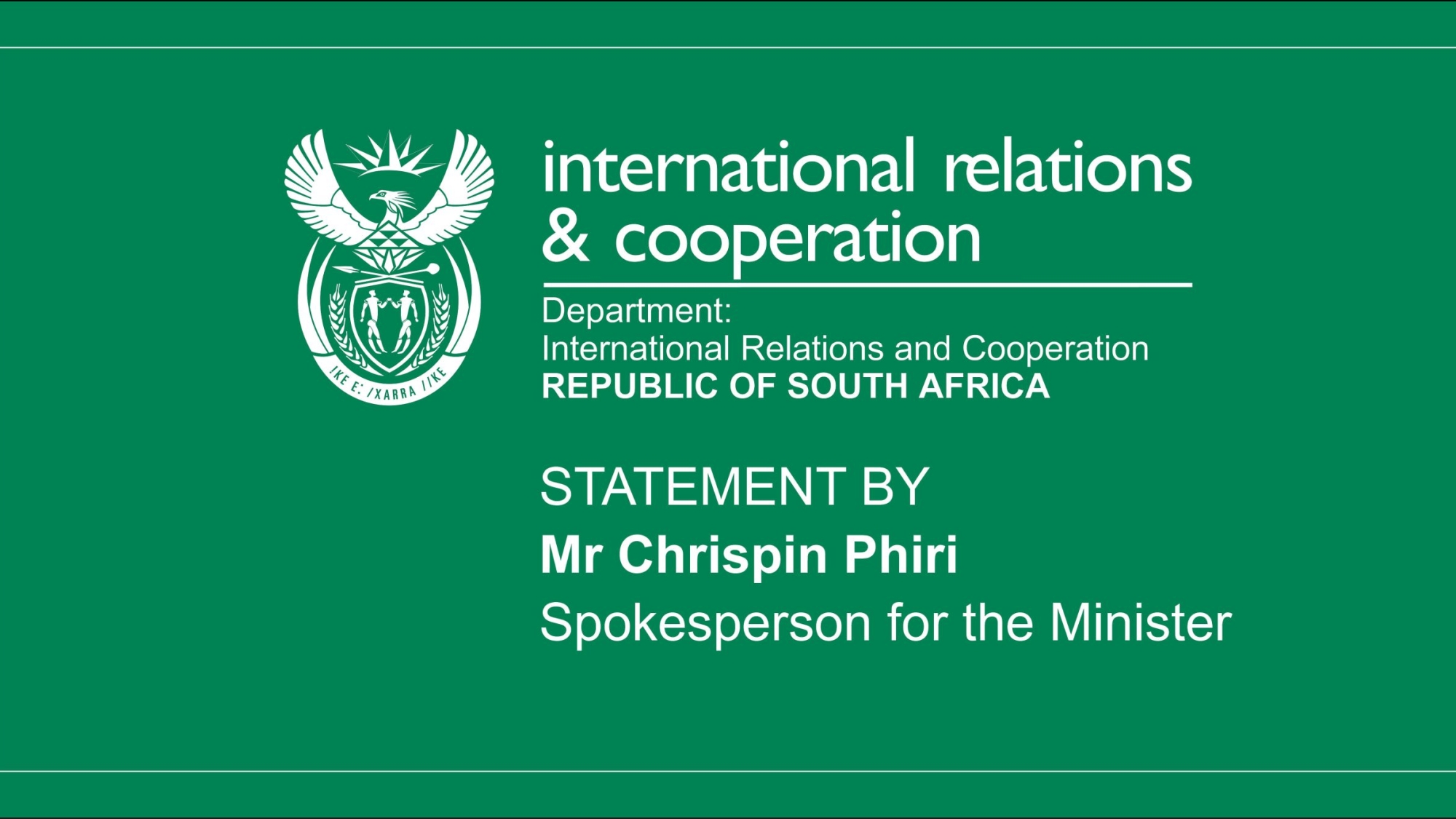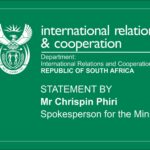

Department of International Relations and Cooperation (DIRCO)
1. Programme Overview
The France–South Africa Scholarship Programme, managed by the French Embassy in Pretoria, aims to foster high‑level academic and research exchanges between France and three partner countries (South Africa, Lesotho, Malawi). Each year, a competitive call for applications is issued to support Master’s and PhD candidates who plan to enrol in a recognised French higher‑education institution, beginning September of the following year.
-
Next call opens: 17 June 2025
-
Study intake: September 2026
-
Fields: All disciplines
-
Governance: An Advisory Board Committee—including representatives from DHET, DSI, NRF, FSACCI, and senior academics in France & South Africa—oversees selection and programme monitoring.
2. Eligible Study Programmes
-
Master’s Degrees (M1 & M2):
-
Dual‑year structure (M1→M2).
-
Applicants may apply directly to M2 if holding an Honours or equivalent (NQF 8) qualification.
-
Only programmes officially recognised by the French Ministry of Higher Education & Research qualify.
-
-
Doctoral (PhD) Programmes:
-
Standard duration up to 3 years.
-
Co‑supervised (cotutelle) PhDs require a precise timeline for periods spent in France and South Africa.
-
SAQA Validation: South African Qualifications Authority only validates diplomas upon return; ensure your French degree is accredited pre‑departure.
Note on “Master of Science” Titles: Some “MSc” labels do not correspond to the French Diplôme de Master – verify recognition before applying.
3. Eligibility Requirements
-
Age: Born on or after 1 January 1996.
-
Citizenship: South African, Lesotho or Malawian nationals only (no dual French citizens).
-
Admission: Must secure—or demonstrate imminent admission to—a Master’s or PhD programme in France before enrolment deadlines (proof of acceptance required between Feb–Jul 2026 for Master’s).
4. Scholarship Duration & Renewal
-
Master’s: Full coverage for two academic years. Renewal to M2 contingent on successful completion of M1.
-
PhD: Awarded for up to three consecutive years; annual renewal based on satisfactory research progress reports.
-
Cotutelle PhD: Funding only covers French residency periods; South African stays are outside the Embassy’s grant.
-
Fieldwork or coursework outside France: Must be fully detailed in the application.
5. Types of Scholarship Schemes
| Scheme | Benefits |
|---|---|
| 1. Full Embassy Scholarship | – Campus France support & social/health insurance – French student visa fee waiver – Priority student housing – CVEC exemption – Conditional tuition‑fee exemption (public universities) – Return flights – Monthly stipend: ≈ €850 (Master’s) / €1 700 (PhD) – Optional CAF housing allowance: ≈ €150/month |
| 2. Cost‑Sharing Scholarship | All full‑scholarship benefits, except part/all of the monthly stipend is covered by a third‑party partner (e.g. company, university). Candidates may propose co‑funders at application stage or be assigned co‑funding by the Advisory Board. |
Tuition Fees: Generally not included; many French public programmes have minimal fees. Applicants are strongly encouraged to seek additional funding (French grants, private sector, institutional scholarships). Parental or family‑business support does not qualify as co‑funding.
6. Application Process & Required Documents
All materials must be submitted online before the deadline. Incomplete or late files are automatically disqualified.
6.1. Core Documents (all applicants)
-
Completed online application form.
-
Copy of valid passport.
-
Curriculum vitae (full academic history).
-
Motivational cover letter.
-
Certified copies of all prior degree certificates.
-
University transcripts for at least two years of study.
6.2. Master’s Candidates
-
Proof of provisional acceptance (email exchanges acceptable) by Feb–Jul 2026.
-
List of up to three preferred programmes, with links, application deadlines, and tuition fees.
6.3. PhD Candidates
-
Supervisor commitment letter (both South African & French supervisors for cotutelle).
-
Detailed research proposal (2–3 pages) with work plan.
-
For cotutelle: preliminary or signed cotutelle agreement and timeline for French residency.
6.4. Optional Supporting Documents
-
Cost‑sharing commitment letters.
-
Two academic/professional reference letters.
-
Language certificates (TCF, DELF, DALF, IELTS, etc.).
Submission Tip: Finalise and “submit” online before the deadline. A confirmation email will follow. No edits can be made after submission.
7. Selection Process
-
Pre‑screening: File completeness & basic eligibility.
-
Shortlisting: Review by Advisory Board on academic merit, project quality, and funding strategy.
-
Interview: Selected candidates will be invited for a panel interview (in person or virtual).
-
Deliberation: Final decisions by the Advisory Board are binding and without appeal.
Selection Criteria:
-
Academic excellence & professional achievements.
-
Relevance and feasibility of study/project plan.
-
Strength of supervision (especially for cotutelle PhDs).
-
Language proficiency alignment with programme requirements.
8. Publication of Results & Awarding Schedule
-
Notification Window: November–December 2025 (main list).
-
Final Awards: Confirmed in three waves between April–July 2026, contingent on official programme acceptance in France.
-
No ranking is disclosed; all communications are direct from the Embassy.
Post‑Selection Requirements:
Complete enrolment formalities with the French institution.
Attend mandatory online French courses (Feb–Jun 2026).
Update the Embassy on any additional funding obtained.
Remain in France for the entire funded period unless otherwise approved.
Any change in research/project topic or institution must be pre‑approved by the Embassy.
9. Key Advantages of the Programme
-
Comprehensive support: From visa facilitation to health coverage and housing assistance.
-
Prestige & network: Access to France’s top universities and a global alumni community.
-
Career impact: Strengthened academic credentials and cross‑cultural competencies.
-
Flexibility: Funding for M2 direct entry and cotutelle structures.
10. Tips for a Strong Application
-
Early preparation: Identify programmes and reach out to prospective supervisors by December 2025.
-
Clear funding plan: Demonstrate initiative by securing or seeking additional scholarships/co‑funding.
-
Polished documentation: Ensure all certificates are certified and transcripts duly translated (if required).
-
Project clarity: Articulate objectives, methodology, and expected outcomes in your proposal.
-
Language readiness: If applying to French‑taught programmes, obtain at least TCF B2 or equivalent.
-
Professional presentation: Treat the online form and supporting letters as part of your academic dossier—proofread carefully.
Was this helpful?
0 / 0
#Documents #Education #Insurance #Pretoria #Universities